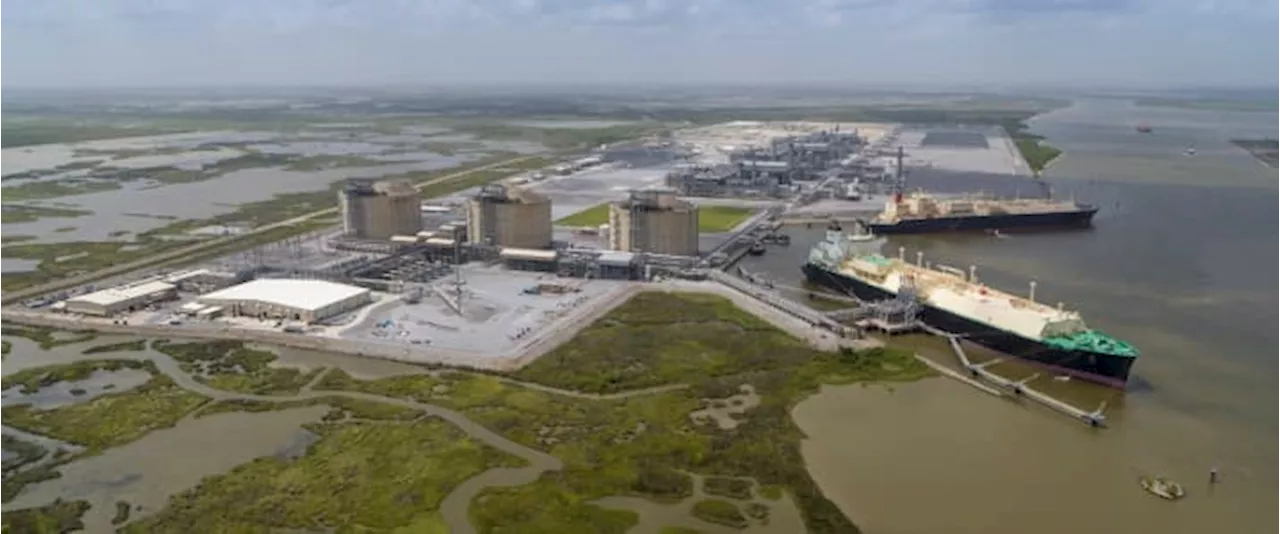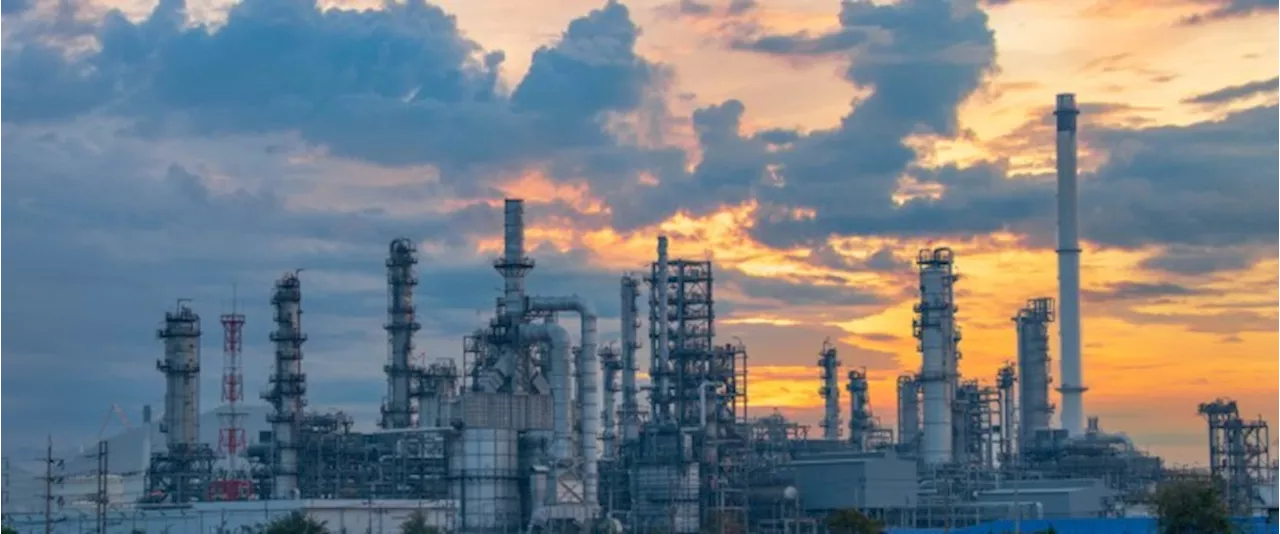Indian Oil Corporation is in discussions to agree on a long-term supply deal with U.S. Cheniere Energy for up to 2 million metric tons of LNG per year, beginning in April 2027. This potential deal comes as Indian buyers seek to secure more U.S. LNG to avoid tariffs imposed by President Donald Trump, and follows the end of the Biden pause on permits for new LNG export projects.
Indian Oil Corporation is in discussions to agree on a long-term supply deal with U.S. Cheniere Energy, in what could be one of many new LNG supply agreements between India and America. Indian Oil, the state oil and gas and refining giant, is negotiating a 15-year agreement to source LNG from Cheniere, the top U.S. exporter, a source at Indian Oil told Reuters on Tuesday on the sidelines of an energy conference in India.
India, and Bharat Petroleum Corporation Limited BPCL are among the companies involved in such discussions, the official added. The talks are taking place just as President Trump is preparing to host Indian Prime Minister Narendra Modi for a meeting in Washington later this week. India and other buyers in Asia are looking to secure more energy deals with the U.S. to avoid the tariff spree of the new U.S. administration.
India, the biggest natural gas distributor in the country, is reviving plans to procure U.S. LNG supply in the long term by either buying a stake in an American export project or signing a long-term offtake agreement, a top company official told Reuters earlier this week. By Tsvetana Paraskova for Oilprice.com
LNG INDIA USA ENERGY DEALS TARIFFS
United Kingdom Latest News, United Kingdom Headlines
Similar News:You can also read news stories similar to this one that we have collected from other news sources.
 TotalEnergies to Boost US LNG InvestmentsTotalEnergies, the largest U.S. LNG exporter, plans to increase investments in American LNG supply and explore expansion opportunities for its existing projects. The French energy giant, already the world's second-largest LNG trader, aims to strengthen its U.S. position through potential investments in Cameron LNG's fourth train and Rio Grande LNG's production facilities. This move follows TotalEnergies' recent acquisition of a stake in dry gas assets in Texas, further integrating its gas value chain in the U.S. CEO Patrick Pouyanne believes U.S. LNG exports, while potentially impacting domestic prices, are not the primary driver of inflation, citing infrastructure limitations as a bigger factor.
TotalEnergies to Boost US LNG InvestmentsTotalEnergies, the largest U.S. LNG exporter, plans to increase investments in American LNG supply and explore expansion opportunities for its existing projects. The French energy giant, already the world's second-largest LNG trader, aims to strengthen its U.S. position through potential investments in Cameron LNG's fourth train and Rio Grande LNG's production facilities. This move follows TotalEnergies' recent acquisition of a stake in dry gas assets in Texas, further integrating its gas value chain in the U.S. CEO Patrick Pouyanne believes U.S. LNG exports, while potentially impacting domestic prices, are not the primary driver of inflation, citing infrastructure limitations as a bigger factor.
Read more »
 Big Oil Prepares for Slump in LNG ProfitsBig Oil companies are preparing for lower profits from LNG trade due to stabilizing prices after a period of high volatility.
Big Oil Prepares for Slump in LNG ProfitsBig Oil companies are preparing for lower profits from LNG trade due to stabilizing prices after a period of high volatility.
Read more »
 EU Tightens Noose on Russia, Targeting LNG ExportsThe European Union (EU) is taking steps to significantly impact Russia's war economy by targeting its lucrative liquefied natural gas (LNG) exports. While previous sanctions have focused on Russia's oil and military production, new measures aim to curtail Moscow's ability to profit from LNG sales, which have remained largely unaffected despite the conflict in Ukraine. This shift in strategy is driven by several factors, including the re-election of Donald Trump as US president, a global surge in LNG production, and growing pressure to hold Putin accountable for the war. The EU is considering a phased reduction in its reliance on Russian LNG, alongside additional sanctions targeting aluminum imports, Russian banks, and oil tankers. However, the plan faces challenges, including political divisions within the EU and the potential for complications arising from a US-EU trade war. Furthermore, existing loopholes, such as EU shipyards maintaining Russian LNG tankers, could undermine the effectiveness of these measures.
EU Tightens Noose on Russia, Targeting LNG ExportsThe European Union (EU) is taking steps to significantly impact Russia's war economy by targeting its lucrative liquefied natural gas (LNG) exports. While previous sanctions have focused on Russia's oil and military production, new measures aim to curtail Moscow's ability to profit from LNG sales, which have remained largely unaffected despite the conflict in Ukraine. This shift in strategy is driven by several factors, including the re-election of Donald Trump as US president, a global surge in LNG production, and growing pressure to hold Putin accountable for the war. The EU is considering a phased reduction in its reliance on Russian LNG, alongside additional sanctions targeting aluminum imports, Russian banks, and oil tankers. However, the plan faces challenges, including political divisions within the EU and the potential for complications arising from a US-EU trade war. Furthermore, existing loopholes, such as EU shipyards maintaining Russian LNG tankers, could undermine the effectiveness of these measures.
Read more »
 US Clarifies Deadline for Russian Oil Tankers to Discharge at Indian PortsIndia received clarification from the US that Russian oil tankers sanctioned earlier this month are allowed to discharge crude at Indian ports until February 27. The US Office of Foreign Assets Control (OFAC) confirmed the deadline, providing some relief for India's oil imports. The wind-down period for financial transactions related to these cargoes ends on March 12. While this clarifies the immediate situation, Indian refiners are already seeking alternative supplies for arrivals after February.
US Clarifies Deadline for Russian Oil Tankers to Discharge at Indian PortsIndia received clarification from the US that Russian oil tankers sanctioned earlier this month are allowed to discharge crude at Indian ports until February 27. The US Office of Foreign Assets Control (OFAC) confirmed the deadline, providing some relief for India's oil imports. The wind-down period for financial transactions related to these cargoes ends on March 12. While this clarifies the immediate situation, Indian refiners are already seeking alternative supplies for arrivals after February.
Read more »
 Indian Refiners Seek Cheaper Middle Eastern Oil with Delivered-at-Port PricingFacing soaring oil and shipping prices due to US sanctions on Russia, Indian state refiners are seeking alternative pricing options from Middle Eastern exporters. Indian Oil Corporation, HPCL, and BPCL have requested Abu Dhabi's ADNOC to offer prices on a delivered-at-port (DAP) basis, in addition to the traditional free-on-board (FOB) terms. This change aims to capitalize on potential cost savings by shifting the responsibility of shipping and insurance costs to the seller.
Indian Refiners Seek Cheaper Middle Eastern Oil with Delivered-at-Port PricingFacing soaring oil and shipping prices due to US sanctions on Russia, Indian state refiners are seeking alternative pricing options from Middle Eastern exporters. Indian Oil Corporation, HPCL, and BPCL have requested Abu Dhabi's ADNOC to offer prices on a delivered-at-port (DAP) basis, in addition to the traditional free-on-board (FOB) terms. This change aims to capitalize on potential cost savings by shifting the responsibility of shipping and insurance costs to the seller.
Read more »
 China Seeks Alternative Crude Oil Sources After Tariffs on U.S. OilChinese refiners are looking for alternative crude oil suppliers following a 10% tariff imposed by the Chinese government on U.S. crude oil. This retaliatory measure is in response to the Trump administration's increase in import taxes on Chinese goods. The move is expected to tighten the market for lighter, sweeter crude as China seeks alternatives to U.S. crude, particularly from West Africa.
China Seeks Alternative Crude Oil Sources After Tariffs on U.S. OilChinese refiners are looking for alternative crude oil suppliers following a 10% tariff imposed by the Chinese government on U.S. crude oil. This retaliatory measure is in response to the Trump administration's increase in import taxes on Chinese goods. The move is expected to tighten the market for lighter, sweeter crude as China seeks alternatives to U.S. crude, particularly from West Africa.
Read more »
